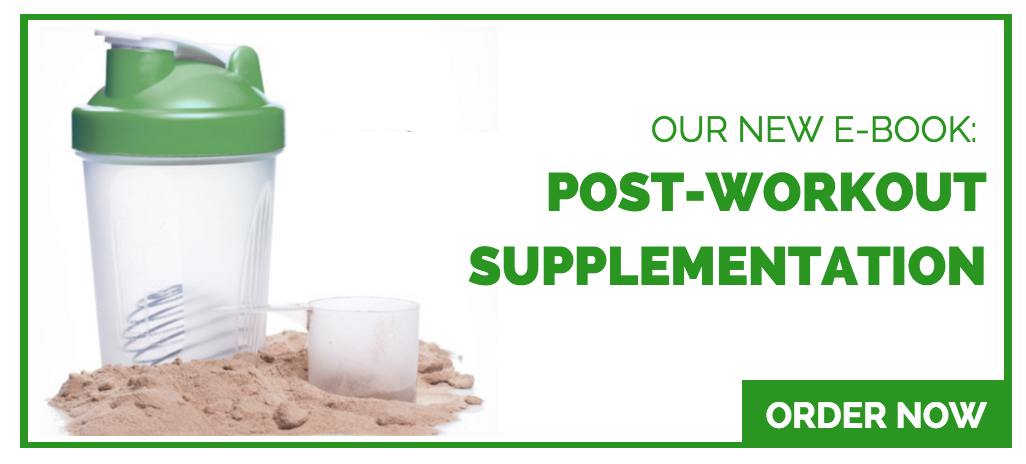
Our Top 3 Supplements For Joint Pain
Written by Calvin Sun
Is your training program taking a toll on your joints? Or perhaps the ravages of time have begun to catch up to your orthopedic health? If you’re experiencing joint pain or soreness, you might be tempted to reach for a nonsteroidal anti-inflammatory drug like aspirin, ibuprofen (known on the street as Advil or Motrin) or naproxen (aka Aleve).
In a previous blog post titled, “The Case Against NSAIDs”, I discussed why ibuprofen, aspirin, and other similar drugs might not be ideal when it comes to managing inflammation in a health-conscious athlete. In short, NSAID use can disrupt the healing process as well as cause other issues like gastrointestinal bleeding and liver toxicity. NSAIDs certainly have their place when used correctly but, in my experience as a coach, the drugs are often overused and abused by athletes.
Today’s post covers a drug-free joint care protocol that’s worked for a variety of client populations that we coach at Invictus: competitive athletes, older adults, and even clients with osteoarthritis.
1. Curcumin
Curcumin is a compound typically found in turmeric. Research has found curcumin to be a potent anti-inflammatory as well as have antioxidant properties [1]. Curcumin by itself tends to have poor bioavailability so it’s best to pick a curcumin supplement that includes piperine to increase absorption or, for even better results, a phytosome form of curcumin such as Meriva. One study found that a 2-gram dose of Meriva had comparable pain relieving effects as a 1-gram dose of acetaminophen without the concern of liver toxicity [2]. I recommend Thorne Research’s Meriva capsules.
Directions: Take 1-2 capsules (500-1000 mg), twice per day with a meal that contains fat if possible.
2. Fish Oil
Numerous studies have found that supplementing with fish oil produces a variety of health benefits including reduced inflammation, improved blood lipid profiles, cardiovascular disease prevention, and even improved cognitive function. In terms of joint health, research has found that fish oil can help reduce joint pain in patients with osteoarthritis and rheumatoid arthritis [3].
Directions: Take 1-2 capsules with your curcumin and possibly a second dose of 1-2 capsules with another meal that contains fat.
3. Hydrolyzed Collagen
Collagen is a special type of protein that is composed mostly of the amino acids glycine and proline. It’s the same protein that makes up your connective tissue structures, like your tendons and ligaments. It’s also the same protein responsible for the health benefits of bone broth. One peer-reviewed study actually found that collagen is so effective in reducing joint pain and assisting with structural repair that even patients with osteoarthritis saw an improvement in their joint health and a reduction in their pain [4,5]. Another study published in the Journal of Nutrition found that 80% of ingested hydrolyzed collagen protein ends up in connective tissue structures such as cartilage, tendons, and ligaments [6].
Directions: Take 1-2 tablespoons (about 5-10 grams) in your post-workout shake, mixed in your morning tea/coffee, or before bed.
Great Lakes Hydrolyzed Collagen
My clients and athletes have reported that this combination of supplements helps them reduce or eliminate the joint aches and pains typically associated with high-volume training cycles, aging, and arthritis. Give it at least a week or two after your start taking the supplements to feel the benefits. In addition, make sure you are taking care of your body with regular mobility and flexibility work, quality sleep, and good nutrition.
If you are interested in learning our supplement-based protocols, then check out our newest book, “Post-Workout Supplementation: An Evidence-Based Guide To Enhance Performance and Optimize Recovery” is available for sale on our website.
Product Recommendations:
Thorne Research Meriva
Viva Naturals Omega-3 Fish Oil or Thorne Super EPA
Great Lakes Hydrolyzed Collagen
Also Check Out…
Should You Consider Taking Glutamine?
FAQ About Cannabidiol (CBD)
Why Drugs Are Not The Answer To Address Chronic Pain And Other Chronic Issues
References:
1. Belcaro G, Cesarone MR, Dugall M, Pellegrini L, Ledda A, Grossi MG, Togni S, Appendino G. Efficacy and safety of Meriva®, a curcumin-phosphatidylcholine complex, during extended administration in osteoarthritis patients. Altern Med Rev. 2010 Dec;15(4):337-44.
2. Di Pierro F1, Rapacioli G, Di Maio EA, Appendino G, Franceschi F, Togni S. Comparative evaluation of the pain-relieving properties of a lecithinized formulation of curcumin (Meriva(®)), nimesulide, and acetaminophen. J Pain Res. 2013;6:201-5. doi: 10.2147/JPR.S42184. Epub 2013 Mar 8.
3.David T Felson, Heike A Bischoff-Ferrari. Dietary fatty acids for the treatment of OA, including fish oil. Ann Rheum Dis doi:10.1136/annrheumdis-2015-208329
4. Kristine L. Clarka, Wayne Sebastianellib, Klaus R. Flechsenharc, Douglas F. Aukermannb, Felix Mezab, Roberta L. Millardb, John R. Deitchb, Paul S. Sherbondyb & Ann Alberta. Current Medical Research and Opinion. Volume 24, Issue 5, 2008.
5. Collagen hydrolysate for the treatment of osteoarthritis and other joint disorders:a review of the literature. Current Medical Research and Opinion. Volume 22, Issue 11, 2006.
6. Oesser S, Adam M, Babel W, Seifert J. Oral administration of (14)C labeled gelatin hydrolysate leads to an accumulation of radioactivity in cartilage of mice (C57/BL). J Nutr. 1999 Oct;129(10):1891-5.

I thought it was recommended not to take anti-inflammatory’s (Curcumin) unless extremely necessary as it messes with your muscle recovery? Thanks for all your blog posts, they are extremely insightful, and love checking every morning!
Derrick